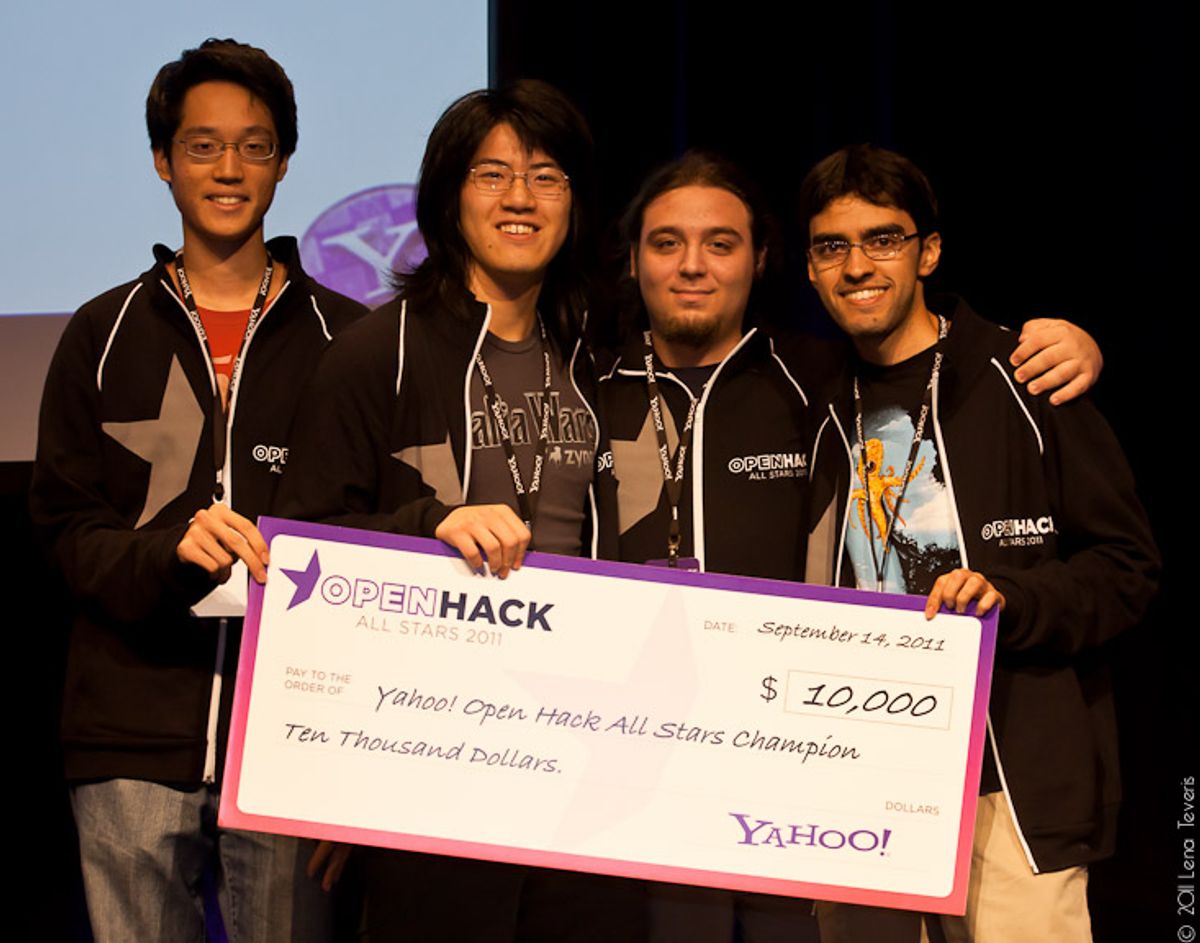On Tuesday, some of the world’s best coders assembled in New York City for a low-intensity battle at breakneck speed: a 24-hour hacking marathon sponsored by Yahoo.
In a hotel conference room studded with purple beanbags and well-stocked with caffeine, 16 hacking teams competed in a sleepless race to conceptualize and code a prototype that, at least theoretically, solves a major problem in digital media. The Open Hack All Stars competition, which pitted winning teams from hack days in Bangalore, Bucharest, Sao Paulo and the United States against each other, was deceptively fierce as the hackers stalwartly sat in the glow of their monitors for hour after hour.
The six finalists’ hacks shared only the Yahoo APIs that formed their backbone. Prototypes included a context-aware music app that selects its jams based on whether you’re in the gym or the sauna, a program that will turn any news page into a photojournalism essay of the day’s events, and an inline commenting capability on news sites.
But a hack created by the team from Carnegie Mellon University stood out for its functionality and sparkly, smooth design. Unlike many of the other finalists, the winning hack, Ruum, doesn’t curate the massive amount of content on the Web. Instead, it strives to streamline the sharing of your own information.
Cobbled together by juniors Arjuna Hayes, Ethan Gladding, Amos Yuen and Chong Xie, Ruum is an online home for group projects. Members can view and comment on shared content without taking extra time to download or install plug-ins. Typically, hackathons ask competitors to “build something hacky that would totally wow a bunch of nerds,” says Hayes, which is how they won the hackathon at Carnegie Mellon that got them to the All Stars event. But Open Hack All Stars instead told hackers to “build something that would totally wow a bunch of business professionals”—specifically, the attendees at Yahoo’s Global Partner Summit, where the winners were announced.
Yahoo has been organizing its open hack days since 2005. Like some other corporate hacking events, such as Facebook’s Hackathon, it started as an internal event to get employees’ minds revving. The winning team’s prize: US $10 000, and an opportunity to let their work blossom inside of Yahoo’s incubator.
But the benefits of hack days go both ways, says Yahoo’s chief technology officer, Raymie Stata. “It’s easy for large companies to develop their own systems,” says Stata, “but if it doesn’t mesh with the technology used outside of the company—especially by hackers and start-ups—it’s not going to help you.” Hence the now-common strategy by Yahoo and other digital media companies of keeping their APIs relatively open for use by developers. Each of the 16 hacks presented on Wednesday morning included at least one Yahoo API, and getting developers to use those interfaces is crucial to Yahoo’s future.
“That’s why we do Open Hacks,” said Todd Hay, senior director of Yahoo’s developer network. “That next big idea isn’t going to come from our brainstorming, scribbling on a whiteboard in a board room.” Maybe Ruum will be one of them.



